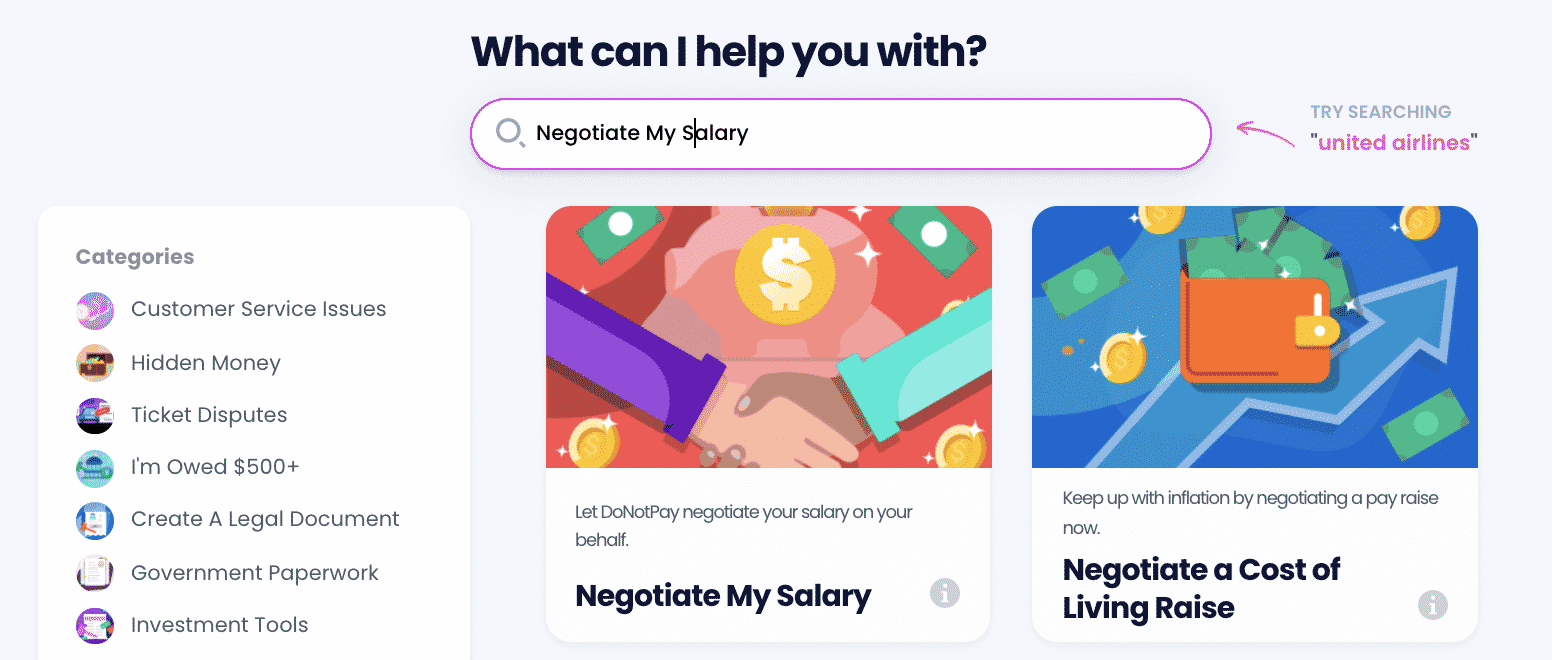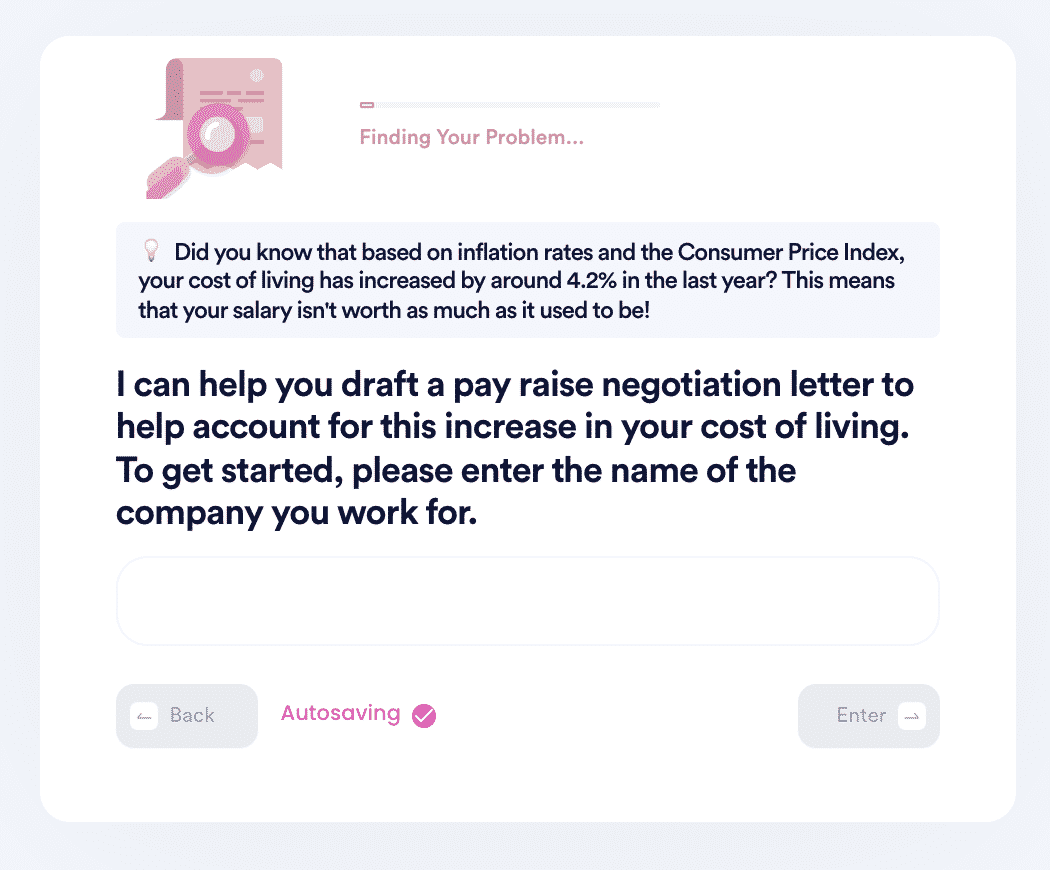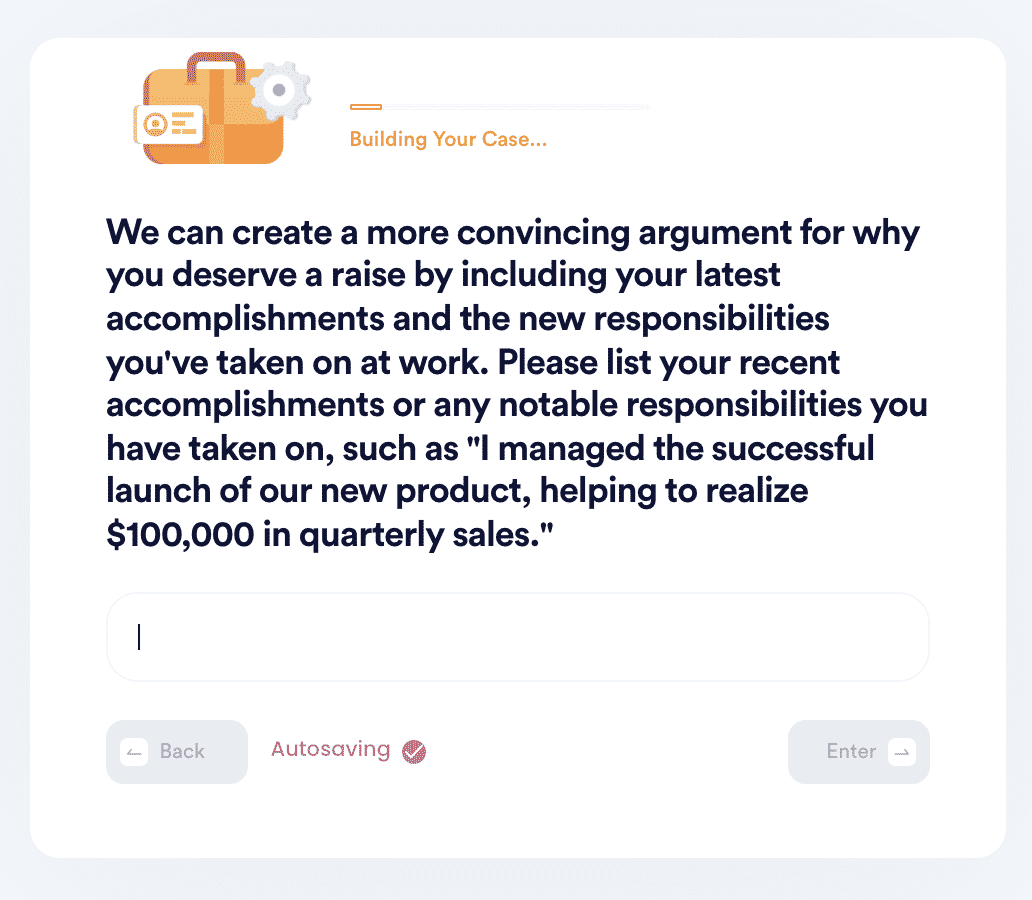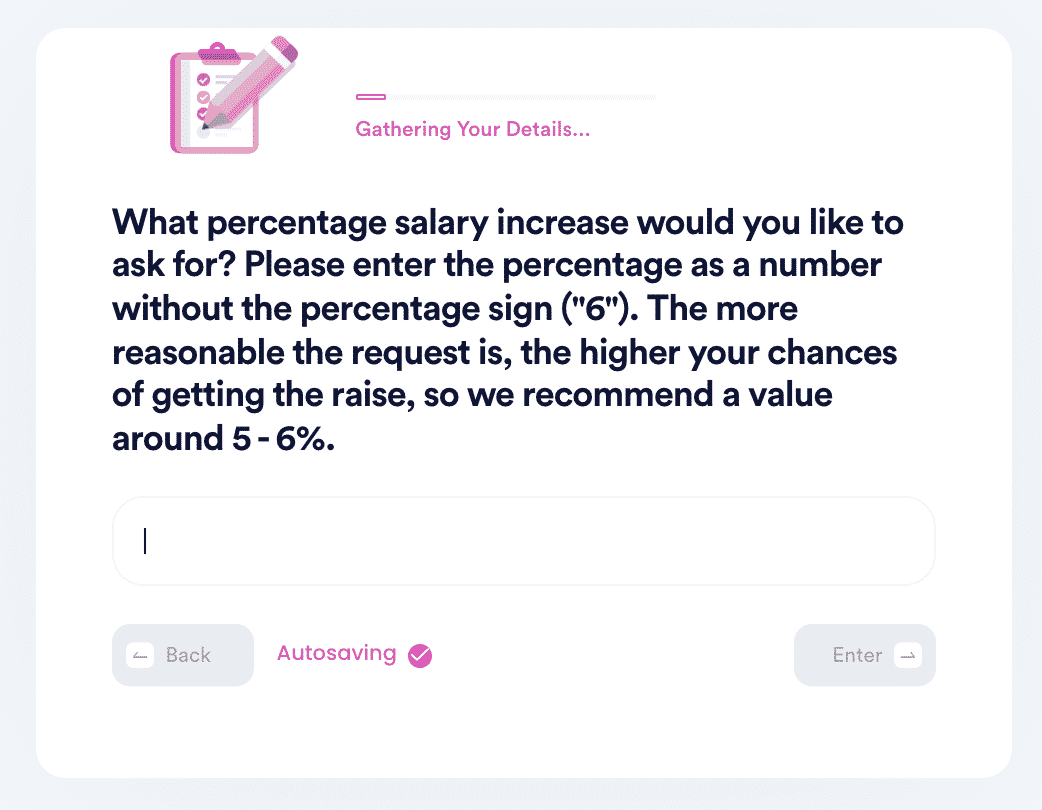How to Negotiate Salary When Given a Range of Pay
Many people are hesitant to ask for a pay raise once their job search is complete and they are You wouldn't want to jeopardize the opportunity now that the company has come this far, especially if the pay is fair.
Often, hiring managers will provide you with time to consider the offer and not expect you to respond right away. However, you may not know how to negotiate a salary, especially when a salary range is already noted in a job description.
Fortunately, DoNotPay is here to teach you how to negotiate a salary that will allow you to ask for what you want tactfully and confidently.
How Do You Negotiate a Salary When Given a Range of Pay?
If you have specific talents and a strong resume, you may be missing money if you do not negotiate a better salary offer. Here are some salary negotiation tips to help you ask for better pay, even when your salary range seems set in stone.
| Get to Know the Salary Trends in Your Sector | You should go into a pay discussion with as much knowledge as possible. Your most powerful ally is information. Gain a current, accurate picture of the salary situation in your area. You'll be able to respond more confidently if you're in the race for one of those desirable jobs.
It may be feasible to negotiate a higher compensation if the company is having problems finding someone with the relevant skills and expertise. |
| Consider the Rewards and Benefit | Incentives and benefits for employees are regularly negotiated as part of compensation discussions. Vacation holidays, flexible hours, or, in today's world, a work-from-home plan may be less costly to the employer than a wage boost.
Examine what you value and what would entice you to accept an offer. If you're comparing several offers, make sure to compare health care coverage, retirement savings plans, and other benefits before deciding. Consider advantages like professional growth possibilities with the prospective company. |
| Support Your Argument | Don't just answer with a higher figure when you've . Even if your facts support your position, expressing why you feel you are entitled to more will aid your success. Identify all of the advantages that someone with your history would offer to the organization to showcase your abilities.
Before negotiating, provide specific instances of how your skills and experience may help your new company's bottom line. Certifications or specific technical skills, for instance, may assist you in doing better in the workplace, so don't overlook these. By tying your skills to the role you'll be taking on, you may make a compelling case for why you should be paid more than the original offer. |
How Often Should You Get a Raise?
If you've just begun a job, wait at least six months before negotiating for a raise. If you've been with the firm for a year or longer, your boss is more likely to grant you a raise. If you've worked for the firm for a long time, you can ask once a year. If your boss wants to talk about your pay at a performance review, this "rule" may change. If this is the case, prepare your talking points to give yourself the most leverage.
Reasons to Get a Raise
As you advance in your job, you should see a rise in your pay. Even though your boss knows when it's time to offer you a raise, you should take the initiative and ask for one yourself. Here are a few reasons why you should ask for a raise.
- You have more responsibilities than usual
- You got a promotion, or a new title
- You have been with the company for a while
How to Negotiate Salary over the Email
Because most employers will deliver a job offer by email first, this is the perfect time to explain the parameters of their compensation plan. Remember, you can ask for more pay even though they’re offering a salary range.
When negotiating a wage, it's better to be nice, professional, and direct in your communications. You want to show that you're thoughtful and organized, and you want to show that you value your boss's time. Therefore, emails work well for salary negotiations.
Here are some tips on how to reply to the offer you've been given by email:
- Thank the company for the opportunity
- Make a counter-offer
- Research and justification should be used to support your position
Use DoNotPay to Negotiate a Better Salary When Given a Range of Pay
DoNotPay makes it super easy to ask for higher pay, even when you’re given . All you have to do is:
- Search "negotiate my salary" on DoNotPay.

- Enter the name of your company and the industry you work in, so we can find the right wage statistics for your role.

- Answer a series of questions regarding your qualifications and achievements, relocation expenses, and other job offers if applicable.

- Enter the new base salary you would like to request.

- And that's it! Once the information is finalized, DoNotPay will generate an official salary negotiation letter that you can then email or present to your employer!
DoNotPay Works Hard for Employees
DoNotPay offers other services that include:
- Learn how to ask for a raise by phone
- Know how much of a raise to ask for
- Fighting workplace discrimination
- Managing subscriptions
- Reducing property tax
Try it today, and earn the best pay possible, even if .


